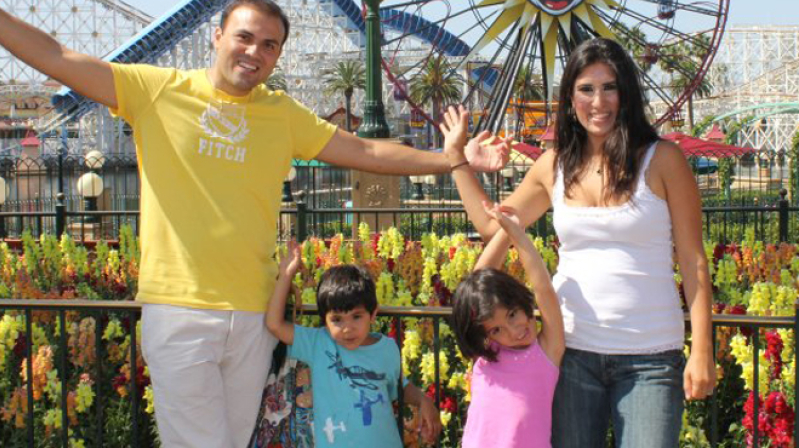
More than 400 days ago, American Pastor Saeed Abedini, travelled back to Iran to continue work on an orphanage he was building with government approval.
According to a news release from The American Center for Law and Justice (ACLJ), if the Iranian regime has its way, Abedini will spend the next seven years behind bars on charges related to his Christian faith.
The ACLJ is a constitutional and human rights law advocacy group representing Abedini's wife and two children. It has called his eight-year prison term "a virtual death sentence," reports Christian Today.
"Every minute, every day Saeed is apart from us is more excruciating than the next," said Abedini's wife, Naghmeh, who lives in Boise, Idaho, with daughter Rebekka, 7, and son Jacob, 5. "This was the second year that Saeed missed Rebekka's birthday (on September 12). We had hoped that this past year would be the last she would ever have to celebrate without daddy. Now, I am faced with the painful realization that our kids are growing up without their father."
Saeed Abedini, a 33-year-old Pastor, father, and husband from Idaho, is currently imprisoned in Evin Prison in Tehran, Iran. On July 28, 2012, during a visit to Tehran to visit family and to finalize the board members for an orphanage he was building in Iran, the Iranian Revolutionary Guard detained Saeed, saying he must face criminal charges for his Christian faith, according to beheardproject.org.
After intense interrogations, Saeed was placed under house arrest and told to wait for a court summons. On September 26, 2012, instead of receiving a summons telling him where to appear, five members of the Revolutionary Guard raided Saeed's parents' home in Tehran, confiscated many of Saeed's belongings, then took him to an unknown location. After four days, the Revolutionary Guard informed the family that Saeed was in solitary confinement in the notorious Evin Prison.
Saeed remained in solitary confinement for about four weeks before he was moved to Evin Prison. During solitary confinement, Saeed was only brought out of his small, dark cell to be subjected to abusive interrogations.
In late February, it became known that Saeed was suffering from internal bleeding -- an injury from beatings he endured during interrogations. Doctors examined Saeed in early March and determined that his injuries warranted immediate attention and, in their medical opinion, he needed to be treated in a non-prison hospital. For a month, the Iranian regime ignored this advice. In an attempt to appease international pressure, on April 8, Saeed was taken to a private hospital, according to beheardproject.org.
Before doing so, guards forced Saeed to change his prison uniform to that of a murderer. Saeed resisted, the guards beat him, then forced him to wear the uniform. When Saeed arrived at the hospital he was never admitted or treated because, according to the guards, the doctor on staff was not present. Saeed has reported that several cellmates, who appear to be connected to the Iranian intelligence police, have threatened to suffocate Saeed while he sleeps.







